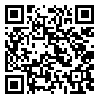Volume 11, Issue 1 (Spring 2025 2025)
JMIS 2025, 11(1): 37-50 |
Back to browse issues page
Ethics code: IR.TABRIZU.REC.1403.124
Download citation:
BibTeX | RIS | EndNote | Medlars | ProCite | Reference Manager | RefWorks
Send citation to:



BibTeX | RIS | EndNote | Medlars | ProCite | Reference Manager | RefWorks
Send citation to:
Azadifar M, hamdipour A, Zavaraqi R, Atapour H. Analyzing human, managerial, and technical barriers to the adoption of digital transformation among librarians at iranian universities of medical sciences. JMIS 2025; 11 (1) :37-50
URL: http://jmis.hums.ac.ir/article-1-587-en.html
URL: http://jmis.hums.ac.ir/article-1-587-en.html
Department of Knowledge and Information Science, University of Tabriz, Tabriz, Iran.
Abstract: (1751 Views)
Introduction: Digital transformation includes the integration of recent information technologies into library services to optimize operational efficiencies. This study aimed to identify barriers to the adoption of digital transformation in the libraries of Iran’s medical science universities (IMSU).
Methods: We conducted a descriptive survey of all 220 full-time librarians at IMSU. Data were gathered using a researcher-designed questionnaire, whose content validity was confirmed by expert review and whose reliability (Cronbach’s α≥0.70) was established through internal consistency analysis. Responses were analyzed in SPSS version 26 using descriptive statistics and inferential procedures, including exploratory factor analysis and multiple linear regression.
Results: The results showed eight important barriers to adopting digital transformation in these libraries: strategic and managerial obstacles, deficiencies in digital knowledge and skills, resistance to change, weak IT infrastructure and integration, limited resources and technical support, legal barriers and job-related concerns, security and cultural impediments, and a lack of digital expertise and competencies. Conclusions: Moreover, multivariate regression analysis showed that some deficiencies in digital knowledge and skills (β=0.396), strategic and managerial barriers (β=–0.222), legal constraints and job-related concerns (β=–0.191), lack of specialized digital competencies (β=–0.187), and age (β=0.158) significantly predicted digital transformation adoption, jointly explaining 22.1% of the variance in the model.
Discussion: To realize digital transformation in IMSU’s libraries, it is essential to strengthen the IT infrastructure, implement librarian empowerment programs, develop documented strategies, revise legal and security policies related to digital services, and simultaneously recruit specialized technical staff. The synergistic implementation of these measures can markedly enhance library service quality.
Methods: We conducted a descriptive survey of all 220 full-time librarians at IMSU. Data were gathered using a researcher-designed questionnaire, whose content validity was confirmed by expert review and whose reliability (Cronbach’s α≥0.70) was established through internal consistency analysis. Responses were analyzed in SPSS version 26 using descriptive statistics and inferential procedures, including exploratory factor analysis and multiple linear regression.
Results: The results showed eight important barriers to adopting digital transformation in these libraries: strategic and managerial obstacles, deficiencies in digital knowledge and skills, resistance to change, weak IT infrastructure and integration, limited resources and technical support, legal barriers and job-related concerns, security and cultural impediments, and a lack of digital expertise and competencies. Conclusions: Moreover, multivariate regression analysis showed that some deficiencies in digital knowledge and skills (β=0.396), strategic and managerial barriers (β=–0.222), legal constraints and job-related concerns (β=–0.191), lack of specialized digital competencies (β=–0.187), and age (β=0.158) significantly predicted digital transformation adoption, jointly explaining 22.1% of the variance in the model.
Discussion: To realize digital transformation in IMSU’s libraries, it is essential to strengthen the IT infrastructure, implement librarian empowerment programs, develop documented strategies, revise legal and security policies related to digital services, and simultaneously recruit specialized technical staff. The synergistic implementation of these measures can markedly enhance library service quality.
Type of Study: Research |
Subject:
Special
Received: 2025/05/6 | Accepted: 2025/08/2 | Published: 2025/08/2
Received: 2025/05/6 | Accepted: 2025/08/2 | Published: 2025/08/2
Send email to the article author
| Rights and permissions | |
 |
This work is licensed under a Creative Commons Attribution-NonCommercial 4.0 International License. |







 hums.ac.ir
hums.ac.ir